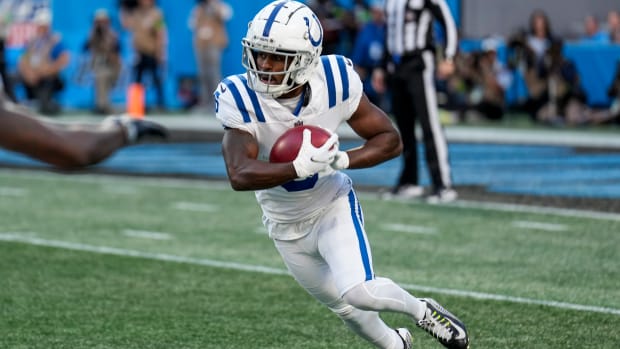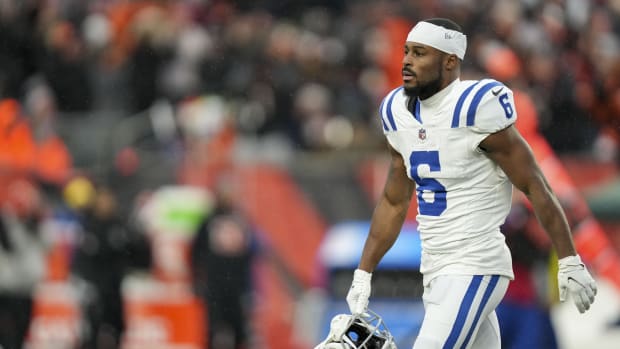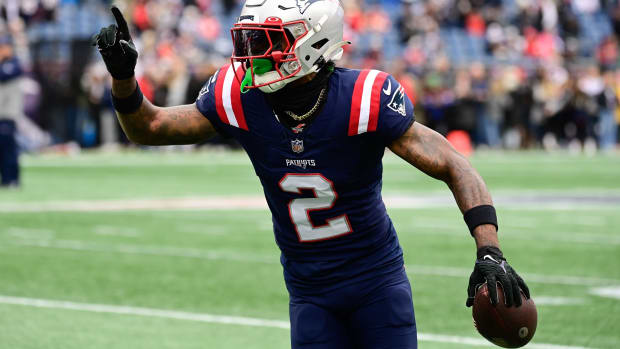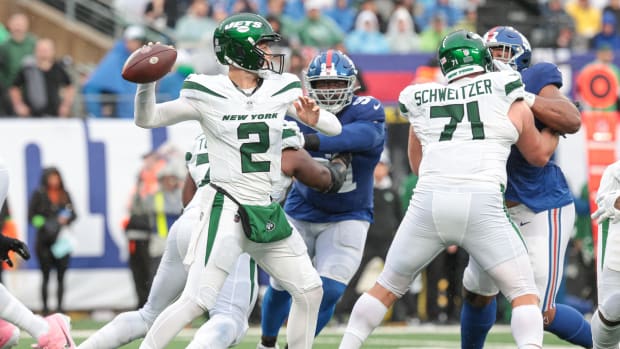How Special Teams Have Helped Prepare Young Players for Larger Roles
Special teams are essential to football due to its impact on starting field position and the skills that players acquire from their participation in what some have called "organized chaos," which could lead to a more significant role.
Such is the case for linebacker Cam Brown, the Giants’ sixth-round draft pick out of Penn State. This week, Brown is projected to see a more significant role on defense thanks to the injuries to Oshane Ximines and Lorenzo Carter.
Brown has played 75 of his 77 NFL snaps so far on special teams. That breaks down to 23 on kickoff return, 19 on kickoff coverage, and 15 on the field goal/extra point block teams, with the rest of his snaps distributed among the other special teams units.
Brown has also recently seen snaps (nine) on the punt coverage team, where he even lined up as a gunner who showed he could take on and defeat double-team blocks, such as what he did against the Rams in Week 4.
Stat-wise, the 6’5” Brown only has two assisted tackles, but he has flashed speed, physicality and has used his length in a way that has the defensive coordinator Patrick Graham very intrigued.
“The thing that stands out for me is the aggressiveness on special teams,” Graham said.
“Cam stands out to me in terms of kickoffs [and] punt covers. That's really the first pay of the defensive possession. I've seen them split double teams, making a tackle, and I’m like ‘You know, that tackle counts for defense. All right, thanks.’ So that's a big part of it. I ‘m happy with those guys how they're out there competing and understanding that the coverage units are an extension of the defense.”
Giants special teams coordinator Thomas McGaughey explained why playing on special teams can serve as a kind of on-the-job training, particularly for young defensive players who need to learn to play with discipline and laser-sharp focus on a unit that usually looks like organized chaos.
“They get a chance to play in space to be able to, to run full speed and negotiate space,” McGaughey said. “That's probably the hardest skill to have as a football player, to be able to negotiate space and to be able to take on blockers full speed, be disciplined and understand leverage and angles, and all the base fundamentals to be a good offense and defensive player. All of those attributes and all of those skills are developed on special teams daily.
“You have a front line blocker on kickoff return and you have to be able to bend your knees, play with leverage, get your eyes in the right spot,” McGaughey continued.
“As a, as a protector on punt, you gotta keep your pad level down. You gotta make sure you get depth off the ball. You gotta understand schemes and concepts.
"As a punt return guy, you gotta be physical at the line of scrimmage. You gotta play with great leverage, knee bend, hat, placement hands. So all of those basic core fundamentals that you have to have as a defensive or offensive player are being honed as you play on special teams.”
McGaughey was asked if special teams offered greater benefits to a defensive player and opined that it benefits both sides of the ball.
“Just playing with great need being in a proper position, just understanding schematics and what you're trying to do and what you're trying to accomplish, and just those overall fundamental football skills,” he said.
Graham said he’s grateful for how McGaughey, assistant special teams coordinator Tom Quinn, and head coach (and former special teams coordinator) Joe Judge have ensured that the young players are taught techniques that can transfer to offense or defense.
And no wonder, as that kind of under the radar preparation certainly comes in handy when injuries strike at a specific position.




